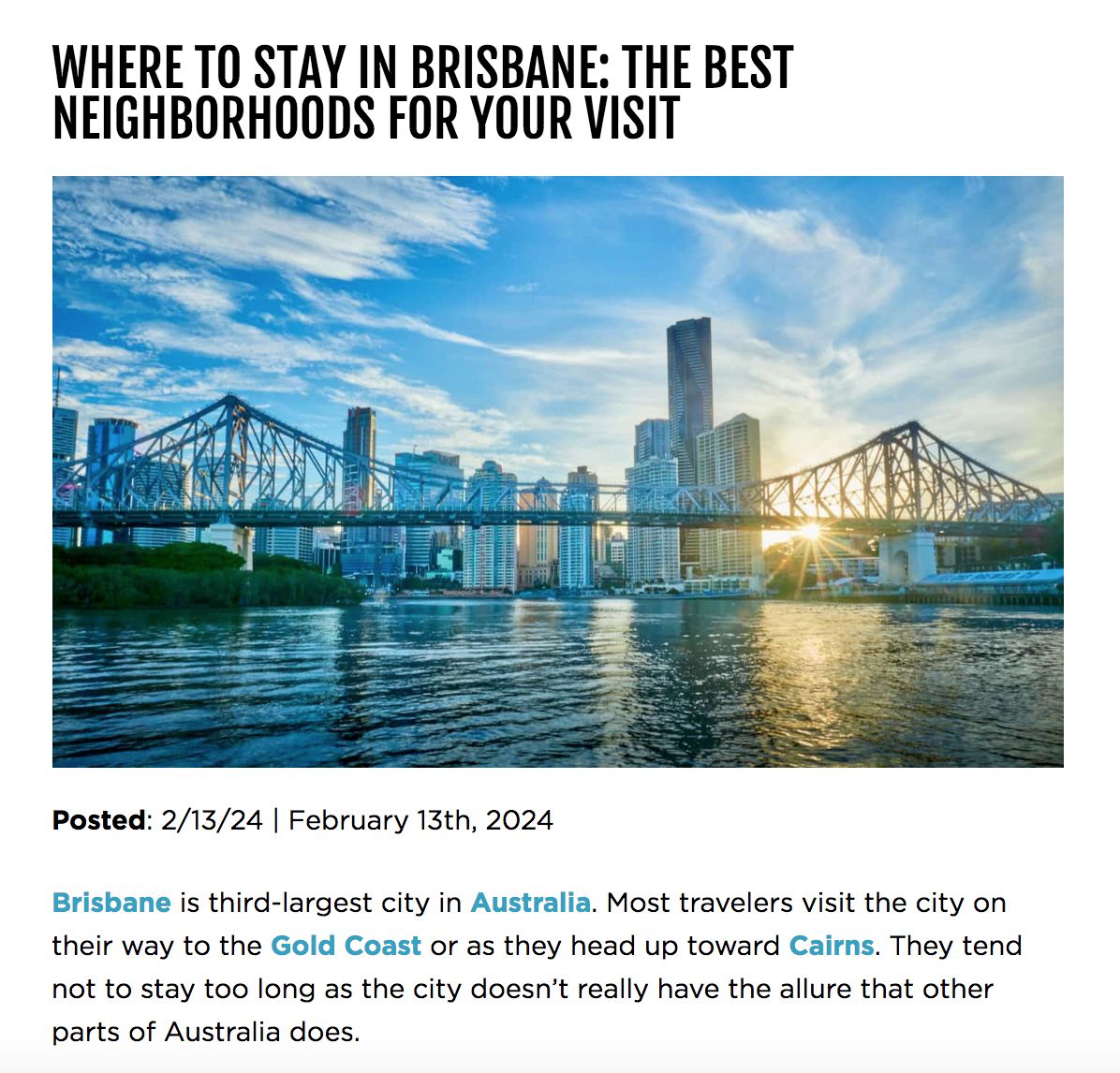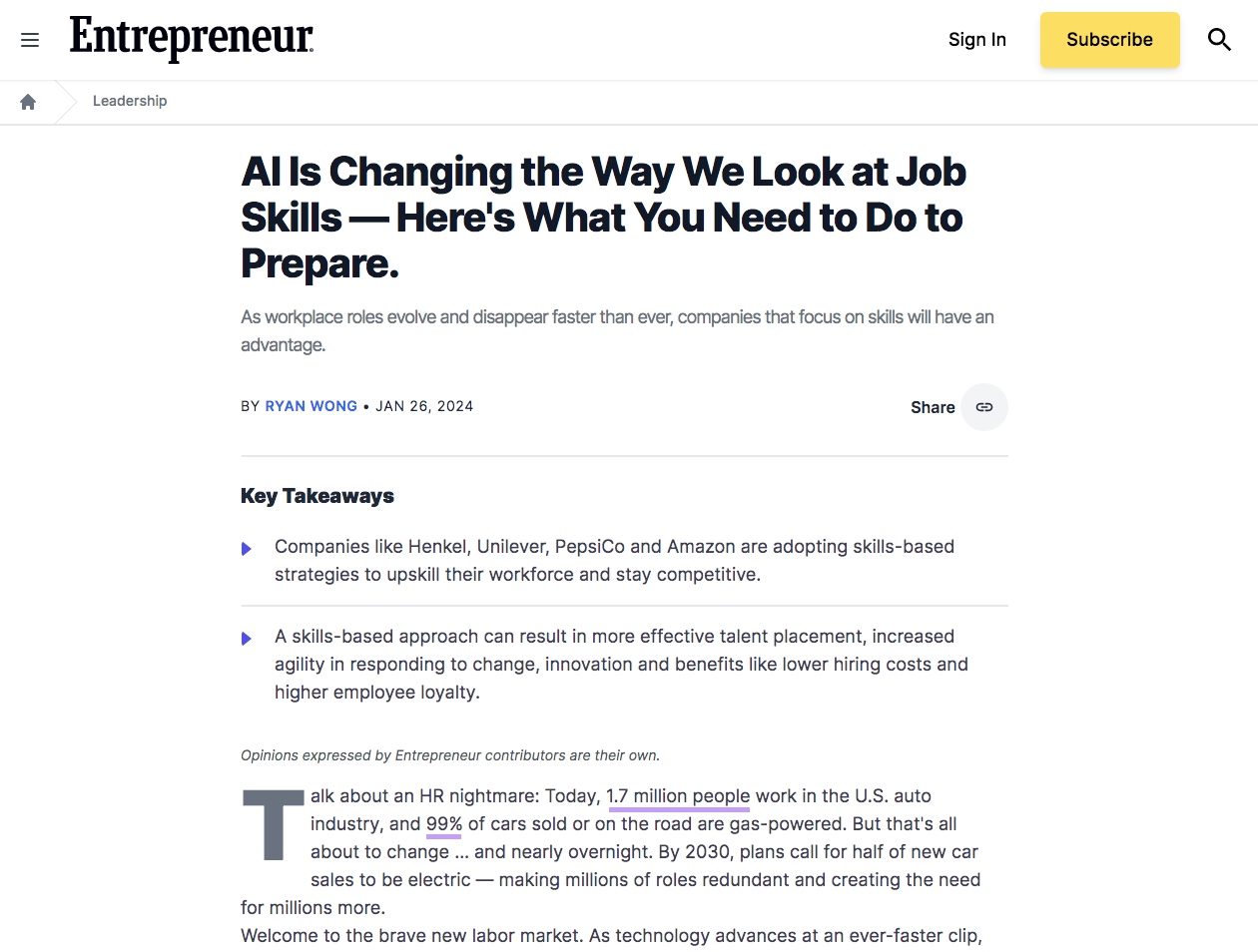A blog post is a piece of writing typically published on a website’s blog that presents information, opinions, experiences, or insights on a particular topic. Blog posts vary in length. And can include text, images, or videos, depending on the topic.
For instance, travel blogs are often rich in visuals. Showcasing the beauty or uniqueness of the places described.
Like this blog post from travel blog Nomadic Matt:

Business blog posts tend to be text-heavy. Focusing on data, expert interviews, industry news, statistics, and other helpful insights.
Like this blog post on Entrepreneur:

What Is a Blog?
A blog, or weblog, is a regularly updated website (or page on a website) that features blog posts on various topics. The content is usually written in a conversational style, addressing the reader directly.
How Does Blogging Benefit Your Business?
Blogging has many potential benefits. Here, we look at the top advantages of creating blog posts for your business.
Builds Authority and Trust
Blogging can be a powerful tool if you’re looking to establish authority in your industry.
By consistently creating valuable and informative content, you can demonstrate expertise. And engage with your audience in meaningful ways.
Here’s how blogging helps build authority:
- Showcases expertise: Blog posts that tackle industry issues, explain complex concepts, or provide how-to guides showcase your depth of knowledge. This helps position you as a thought leader in your industry.
- Improves SEO: Well-crafted blog posts that incorporate relevant keywords can improve a website’s search engine rankings. Higher visibility in search results can lead to increased website traffic. And leads.
- Builds trust: By providing valuable content without a hard sell, businesses can build trust with their audience
Gives You Full Control
With a blog, you have full control over the content you publish. Including the length, format, and topics you cover.
Blogging platforms like Medium and social media sites like Facebook can remove content at any time. And for any reason.
This may happen if what you write goes against their guidelines, someone (such as a competitor) reports your posts, or the platform goes out of business.

